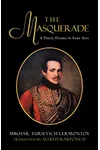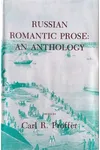Picture Picture a fiery young poet, weaving tales of love, rebellion, and the wild Caucasus Mountains—Mikhail Lermontov, Russia’s Romantic genius, captured hearts before his life was cut short at 26. Known as 'the poet of the Caucasus,' his vivid poetry and prose shaped 19th-century Russian literature with a passion that still burns bright.
Born in 1814, Lermontov’s turbulent life fueled his art, blending raw emotion with sharp psychological insight. From his exiled wanderings to his tragic duel, his story is as gripping as his verses. Ready to dive into his world?
The Making of Mikhail Lermontov
Mikhail Yuryevich Lermontov was born in Moscow to a noble family, but his early life was far from charmed. Orphaned young, he was raised by his grandmother, who nurtured his love for literature. The rugged beauty of the Caucasus, where he spent time as a child, left a lasting mark, inspiring his vivid imagery. By his teens, he was already penning poetry, influenced by Pushkin and Byron, with a flair for dramatic flair and rebellion.
His military career, however, set the stage for his legend. Sent to the Caucasus for his outspoken verses, Lermontov found both exile and muse in its landscapes and cultures. His defiance of authority and sharp wit made him a polarizing figure, but his pen never faltered, crafting works that pulsed with life.
Mikhail Lermontov’s Unforgettable Works
Lermontov’s poetry and prose are a masterclass in Romantic intensity. His novel A Hero of Our Time (1840) is a landmark, blending adventure and psychological depth. Through its flawed protagonist, Pechorin, Lermontov explores disillusionment and human nature, earning praise as a precursor to modern literature.
His poetry, like 'The Demon,' is equally haunting. This narrative poem, set in the Caucasus, tells of a fallen angel’s doomed love, dripping with gothic allure. Other works, such as 'The Novice' and 'The Sail,' showcase his knack for blending personal longing with universal themes. Lermontov’s style—vivid, lyrical, and introspective—captured the Russian soul, earning him comparisons to Pushkin.
His play Masquerade reveals his dramatic side, critiquing societal hypocrisy with biting satire. Each work, whether poem or prose, pulses with his love for freedom and disdain for convention, making his small but mighty oeuvre timeless.
Why Mikhail Lermontov Matters
Lermontov’s impact on Russian literature is colossal. He bridged Pushkin’s classicism and Dostoevsky’s psychological depth, shaping the Russian novel and poetry’s evolution. His fearless critique of society and exploration of the human psyche resonated with generations, inspiring writers and rebels alike. In the Caucasus, his work immortalized the region’s beauty and strife, earning him enduring reverence.
Today, Lermontov’s legacy lives in Russian culture, from school curricula to stage adaptations. His ability to weave personal turmoil into universal truths makes him a poet for all ages, reminding us to embrace life’s wild, fleeting beauty.
About Mikhail Lermontov
- Born: October 15, 1814, Moscow, Russia
- Died: July 27, 1841, Pyatigorsk, Russia
- Key Works: A Hero of Our Time, 'The Demon,' 'The Novice'
- Fun Fact: Lermontov was exiled twice for his bold writings!
Grab A Hero of Our Time and lose yourself in Lermontov’s thrilling, soul-stirring world. His words still spark fires—dive in!




